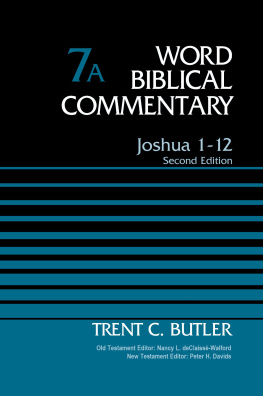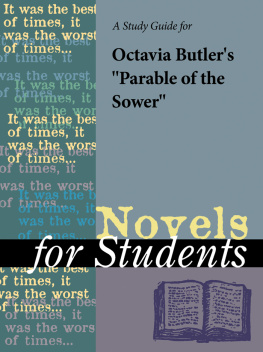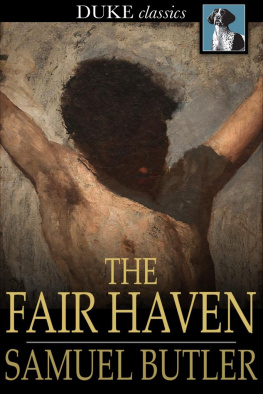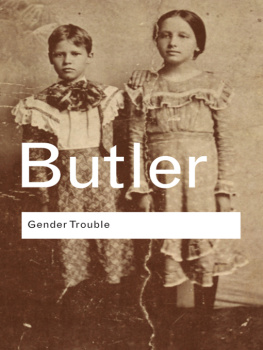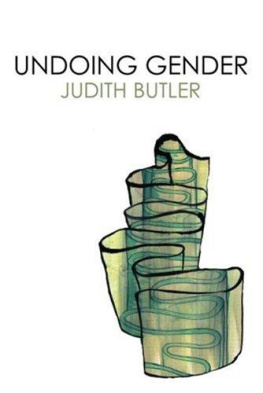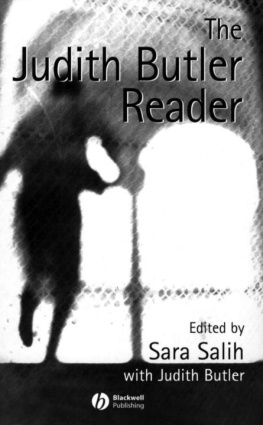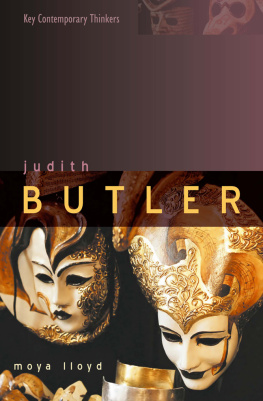Judith Butler in Conversation
This is a unique text that takes us into a sophisticated discussion between Judith Butler and some of the scholars who use her analytics for applied work. With Bronwyn Davies as facilitator you are in the best hands when entering this exceptionally interesting conversation with one of the most influential feminist philosophers of our time
Dorte Maria Sndergaard,
Institut for Pdagogisk Psykologi
This book brings to life a series of compelling conversations with Judith Butler by academics using her work to explore the subjective grounds for an ethics of everyday life, an ethics that is based on a relationality that binds us to the Other. The result is a truly inter-disciplinary and scholarly work. It provides readers with a lively interchange of ideas at the interface between philosophy and other social science and humanities. Butler challenges academics to understand how acknowledging the limits of self-knowledge can serve as an ethics of responsibility. I thoroughly recommend this book for all academics and students who are interested in the operation of agency and the question of how individuals struggle to account for themselves.
Johanna Wyn,
University of Melbourne
This terrifically exciting collection is a textual representation of a two-day symposium in which several scholars met with Judith Butler, one of our pre-eminent feminist philosophers, to talk about how they have taken up her work. Organized as papers, written responses to those papers, Butlers oral responses to both, and then general conversation by all present, the book reflects what must have been a very exciting event in which I, for one, wish I had been included. Many of us avidly read Butlers published work, but we seldom read transcripts of her talk. In her responses, for example, she troubles that lauded feminist concept, embodiment, and reflects on the policing of academic disciplines and those whose work is out-of-category. The unusual format of the book makes it compelling and a page-turner. Its a fine addition to our collection of work by and about Judith Butler.
Elizabeth A. St.Pierre, Professor,
University of Georgia
Judith Butler in Conversation
Analyzing the Texts and Talk of Everyday Life
Edited by
Bronwyn Davies
Routledge
Taylor & Francis Group
270 Madison Avenue
New York, NY 10016
Routledge
Taylor & Francis Group
2 Park Square
Milton Park, Abingdon
Oxon OX14 4RN
2008 by Taylor & Francis Group, LLC
Routledge is an imprint of Taylor & Francis Group, an Informa business
International Standard Book Number-13: 978-0-415-95654-3 (Softcover) 978-0-415-95653-6 (Hardcover)
No part of this book may be reprinted, reproduced, transmitted, or utilized in any form by any electronic, mechanical, or other means, now known or hereafter invented, including photocopying, microfilming, and recording, or in any information storage or retrieval system, without written permission from the publishers.
Trademark Notice: Product or corporate names may be trademarks or registered trademarks, and are used only for identification and explanation without intent to infringe.
Library of Congress Cataloging-in-Publication Data
Judith Butler in conversation : analyzing the texts and talk of everyday life / edited by Bronwyn Davies.
p. cm.
ISBN-13: 978-0-415-95653-6 (hardback : alk. paper)
ISBN-13: 978-0-415-95654-3 (pbk. : alk. paper)
1. Philosophy, Modern--20th century. 2. Civilization, Modern--20th century. 3. Butler, Judith, 1956- 4. Self (Philosophy) I. Butler, Judith, 1956- II. Davies, Bronwyn, 1945-
B804.J85 2007 |
305.3092--dc22 | 2006032347 |
Visit the Taylor & Francis Web site at
http://www.taylorandfrancis.com
and the Routledge Web site at
http://www.routledge.com
This kind of book would not be possible without the generosity extended by Judith Butler to both the authors and to the participants from the symposium: A lived history of the thought of Judith Butler presented by the Narrative, Discourse and Pedagogy research concentration at the University of Western Sydney, Australia in June 2005. Thank you to the participants at the symposium for contributing to lively conversation: Peter Bansel, Kellie Burns, Vicki Crowley, Katrina Jaworski, Robert Payne, Mary Louise Rasmussen, Kerry Robinson, Margaret Somerville, and Jane Ussher. The attentiveness Judith Butler offers suggests much about the ethics of listening, and of response. Engaging with Butlers oeuvre, the authors in this volume present innovative scholarship that is particularly resonant for the humanities and social sciences.
I am grateful to Wayne McKenna, the executive dean of the College of Arts at the University of Western Sydney, for his support of the forum that generated the conversations reflected in this collection. A thank you to Professor Michael Atherton, the associate dean of research, for his support. Also, thank you to David McBride and Brendan ONeill, who started this project at Routledge, and to Steve Rutter, Anne Horowitz, and Marsha Hecht, who saw this book through to its completion. Special thanks are due to Michael Gottsche for all his efforts in compiling the manuscript and references, and particularly to Cristyn Davies for her editorial contribution, her tireless negotiation with authors and publisher, and for her work in driving this project.
Judith Butlers essay is an adapted and shortened version of her chapter by the same title in Giving an Account of Oneself, New York: Fordham University Press, 2005.
Jonathan Bollen researched the choreography of the dance floor at Sydneys Mardi Gras Party and Sleaze Ball for his doctorate. His more recent research is on masculinities in Australian theatre since the mid-1950s. He has taught theatre, dance, and performance studies at the University of New England, Monash University, and the University of Western Sydney. He has also worked with David McInnes on research into gay mens sexual cultures and on collaborative projects with the AIDS Council of New South Wales and the Australian Federation of AIDS Organisations. He now lives in Adelaide and lectures in drama at Flinders University.
Judith Butler is Maxine Elliot Professor in the Departments of Rhetoric and Comparative Literature at the University of California, Berkeley. She received her Ph.D. in Philosophy from Yale University in 1984. She is the author of Subjects of Desire: Hegelian Reflections in Twentieth-Century France (Columbia University Press, 1987), Gender Trouble: Feminism and the Subversion of Identity (Routledge, 1990), Bodies That Matter: On the Discursive Limits of Sex (Routledge, 1993), The Psychic Life of Power: Theories of Subjection (Stanford University Press, 1997), Excitable Speech: A Politics of the Performative (Routledge, 1997), Antigones Claim: Kinship Between Life and Death (Columbia University Press, 2000), and Contingency, Hegemony, Universality: Contemporary Dialogues on the Left, with Ernesto Laclau and Slavoj Zizek (Verso Press, 2000). In 2004, she published a collection of writings on wars impact on language and thought entitled Precarious Life: The Powers of Mourning and Violence with Verso Press. That same year, The Judith Butler Reader appeared, edited by Sara Salih, with Blackwell Publishers. A collection of her essays on gender and sexuality,


